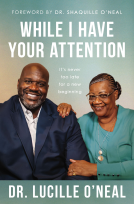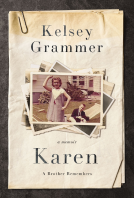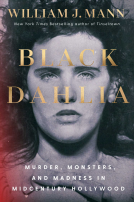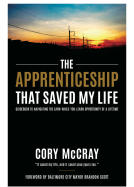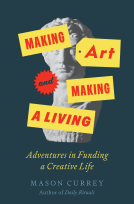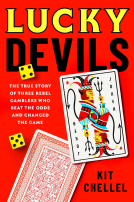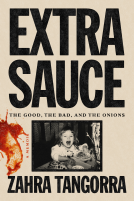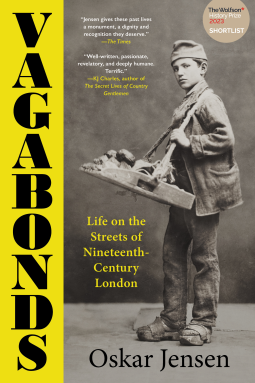
Vagabonds
Life on the Streets of Nineteenth-Century London
by Oskar Jensen
This title was previously available on NetGalley and is now archived.
Send NetGalley books directly to your Kindle or Kindle app
1
To read on a Kindle or Kindle app, please add kindle@netgalley.com as an approved email address to receive files in your Amazon account. Click here for step-by-step instructions.
2
Also find your Kindle email address within your Amazon account, and enter it here.
Pub Date Feb 20 2024 | Archive Date Feb 19 2024
Talking about this book? Use #Vagabonds #NetGalley. More hashtag tips!
Description
This file is NOT currently available for Kindle. We apologize for any inconvenience. If you have difficulties with downloading, please email us (at publicity@theexperimentpublishing.com) for assistance or leave a note in lieu of a review rating.
Social history at its finest and most accessible: Vivid accounts of Dickensian London’s street denizens reveal the true character of this place and time
Shortlisted for the Wolfson History Prize 2023
British historian Oskar Jensen combs through hundreds of late Georgian and Victorian primary and secondary accounts to document the stories of London’s poor through their own voices. What emerges is a buzzing world of the working classes, diverse in gender, ethnicity, ability, origin, and occupation.
There’s two-year-old Susan Mosely, kidnapped by an older woman because beggars with children are treated with more sympathy. There’s John James Bezer, a seven-year-old who’s elated to find a job as a street deliveryman—working seventeen hours a day. And there’s Joseph Johnson, a Black ex-sailor who’s famous for singing sea songs outside the Tower of London with a model ship balanced on his head.
The stories in Vagabonds form a moving picture of people in poverty and a reminder of the power of the human spirit—but also of the suffering begotten by a society divided into rich and poor. Jensen’s assiduous work results in a meticulously accurate portrait of the visceral sights, sounds, and smells of Dickensian London, offering us a vibrant new perspective on the streets and their lives.
Available Editions
| EDITION | Other Format |
| ISBN | 9781891011429 |
| PRICE | $18.95 (USD) |
| PAGES | 336 |
Available on NetGalley
Average rating from 3 members
Featured Reviews
 Reviewer 862825
Reviewer 862825
A primary source derived excursion in to the rarely heard voices of people who lived and worked in London's streets between the 1780s and 1870s. Oskar Jensen's goal is to humanize and empathize with people who lived and worked on the streets, offering a quite different view of how we picture or imagine Victorian London.
This is not an architectural or legal story, but one of people. Jensen using the birth to death structure to arrange chapters describing street life for different groups. Chapter one looks at the infant, chapter the boy, three the girl. Chapter four explores the immigrant experience. Chapter five looks at the life of the professional. Chapter six looks at those living beyond or fleeing from the law. Chapter seven centers on the elderly. All of these chapters looks at that almost century and present, in their own words, or the words of contemporary witnesses, lived experience. Some people reappear across multiple chapters, having written of their own lives. Other's we only see briefly.
It is very much a work focused on the poor and the struggle and challenges of survival. Some are temporary residents of the streets falling on bad luck, others have made due and eke out their daily lives through an established location or routine. However, it does also highlight stories of success, of those who learned to game the system or reached heights of fame. There are some possibilities of support either through the local parish or by entering a workhouse, but many speak to the inefficiency or unhygienic conditions of these places. To appear clean and presentable is seen by many to be necessary to secure any sort of work, especially as begging is criminalized.
Most striking is the ephemerality of the lives led. For example, in 'The Elder" chapter, some street musicians names are only known, because they performed at a funeral that made the newspaper. Many of the people's whose stories are told here are only known through the writings cited in this volume. What traces does a life leave? Is to survive enough?
Recommended to those interested in History, this book serves as an excellent survey of London's Street life and would be a useful accompaniment to Dirty Old London: The Victorian Fight Against Filth.
Readers who liked this book also liked:
Scott Michael LeRette
Biographies & Memoirs, Christian, Parenting, Families, Relationships

